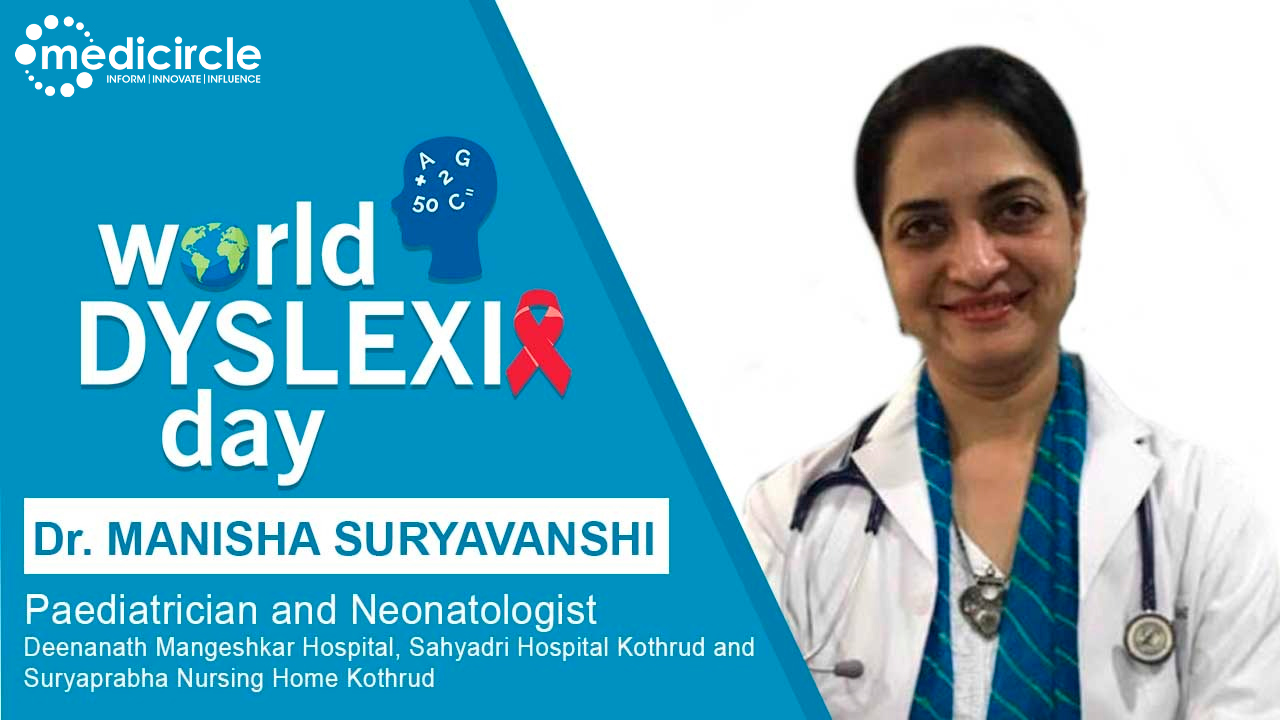Dyslexia is a neurological condition of a learning disability that affects a person’s ability to understand read, write and spell. They find it difficult to distinguish between ‘b’ and ‘d’. Unlike other learning difficulties, dyslexia is a Special Learning Difficulty. This title emphasizes that dyslexic people have the same or sometimes even above average intelligence. An estimated 5 to 10% of people suffer from dyslexia. In India, 35 million children are diagnosed as dyslexic as per the Dyslexia Association of India (2016 figures). Where an estimated 14% suffer from dysgraphia and 5.5% suffer from dyscalculia, 18% of Indians suffer from dyslexia.
World Dyslexia Day is celebrated annually on 7th October to inform people of the struggles and challenges that are faced by dyslexic people. Dyslexia cannot be cured or reversed but one can help dyslexic people with therapies and solutions. We at Medicircle are conducting the World Dyslexia day Awareness Series wherein we will be featuring experts of this field to understand and create awareness about dyslexia.
Dr Manisha Suryavanshi is a consultant at Deenanath Mangeshkar Hospital, Sahyadri Hospital Kothrud, and Suryaprabha Nursing Home Kothrud. She was attached to Bandra Bhavna Hospital. She is a Practising paediatrician and neonatologist for the last 23 yrs in Pune. At present, she is an Executive Board Member of the IAP - Pune branch.
About Dyslexia
Dr Suryavanshi begins, “Dyslexia in simple terms mean mirror reading. Here the patient often misreads two letters that almost look the same. For dyslexic people, there is no difference between ‘b’ and ‘d’ and between ‘6’ and ‘9’. The problem persists particularly when they write. Their general vocabulary doesn’t get affected.”
Dyslexia vs Other Disabilities
She says, “Dyslexia could be a part of other syndromes. For instance, autistic children can have dyslexia. Dyslexic people only have writing difficulties. They suffer from no other difficulties like hearing or any issues with intelligence. This is mainly why dyslexia cannot be compared to other disabilities and is a separate entity.”
Struggles of Dyslexic Children
Dr explains, “Writing is an integral part of our academic life. In schools, written tests are the dominant mode of testing students and oral exams only have a 20% weightage. Since dyslexic students suffer from mirror reading, this creates a great struggle for them and affects their performance in the scholastic years.”
“Sometimes even the teachers don’t understand what the child is suffering from. They think the child is not paying attention or is weak in studies. Which is not true. The child becomes confused because for him/her there is no difference between such similar letters.”
Initiatives Parents and Teachers must take
She mentions, “Parents must first understand that it is a disability and not a disease. Both teachers and parents need to take a different approach when it comes to dyslexic children. Rather than asking the child to change, they themselves need to change and not expect the child to do what other non-dyslexic children can do.”
“Some sensitivity from the teacher’s side can help the child to not undergo confusion and stress. Both parents and teachers should know the child is not purposefully being naughty or negligent.”
(Edited by Priyal Shah)

 Dyslexia is a neurological condition that affects 18% of all Indians ability to read, write and spell. They find it difficult to distinguish between ‘b’ and ‘d’. Read to find out more.
Dyslexia is a neurological condition that affects 18% of all Indians ability to read, write and spell. They find it difficult to distinguish between ‘b’ and ‘d’. Read to find out more. 















.jpeg)











.jpg)




